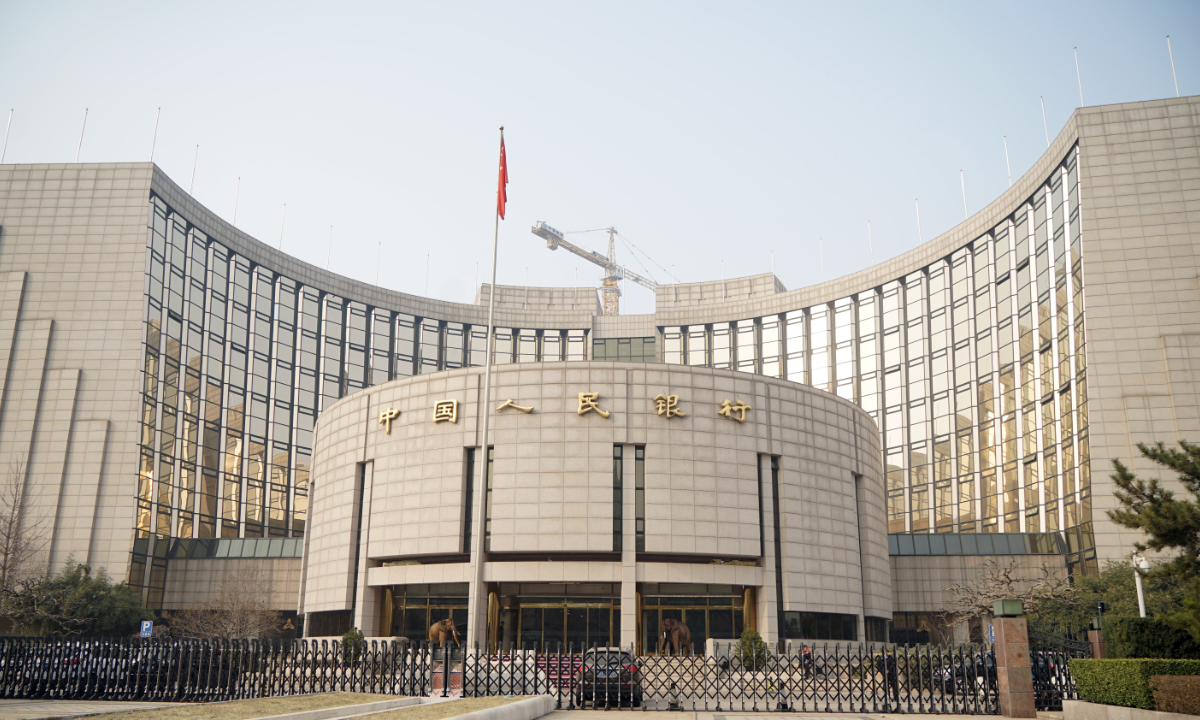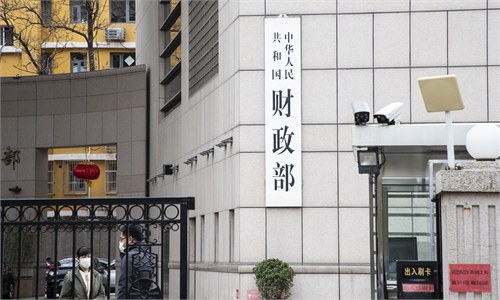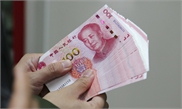China’s central bank facilitates cross-border financing by enterprises in a bid to strengthen the yuan

The headquarters of the People's Bank of China (Photo: Xinhua)
China on Thursday raised a key parameter in its macro-prudential management to allow domestic firms to borrow more foreign debt. Analysts said the move sends a signal over renewed efforts to stabilize the yuan's exchange rate, which will help stabilize investor confidence and better serve the development of the physical economy by coordinating domestic and international resources.
The macro-prudent parameter, a multiplier that decides the upper limit of outstanding cross-border financing an institution can have, will be set at 1.5 starting on Thursday, up from 1.25 previously, according to a joint statement by the People's Bank of China and the State Administration of Foreign Exchange.
The move is expected to help domestic enterprises and financial institutions raise funds through multiple channels and optimize their balance sheet structure, the statement said.
The move will expand channels for domestic enterprises to raise funds overseas and help increase the liquidity of the US dollar in the Chinese mainland market, and accordingly ease the yuan's depreciation pressure, Zhao Qingming, a Beijing-based veteran financial expert, told the Global Times on Thursday.
The adjustment will help ensure a stable foreign exchange market and prevent wild volatility impacting the yuan, Zhao said.
Following the central bank's statement, the exchange rate of the onshore yuan reached 7.1788 at 2 pm Thursday, strengthening over 400 basis points (bps) compared with previous trading session. The offshore yuan reached 7.1846, up nearly 500 bps.
In addition, this will help reduce the difficulty and costs for domestic companies to raise financing cross-border and better coordinate both domestic and international markets and resources to serve the development of the real economy, Dong Shaopeng, a senior research fellow at the Chongyang Institute for Financial Studies at the Renmin University of China, told the Global Times on Thursday.
In recent years, China has continued to expand high-level opening up of its financial sector including securities, bond and financial derivatives, which has ensured equilibrium in the country's cross-border capital flow. This underscores that China's continuous opening up contributes to the long-term stability of the yuan, Dong said.
The measures are still abundant in the central bank's toolkit in dealing with the yuan's fluctuations, including reserve requirement for foreign currency deposits, countercyclical factor and central bank bills, according to analysts.
Liu Guoqiang, deputy governor of the PBC, said on July 14 that the central bank has the confidence and capability to ensure a stable foreign exchange market.
He stressed that although the yuan depreciated, it has not deviated from the fundamentals. He cited three supportive factors for the yuan's stability: sound economic fundamentals, a moderate current account surplus, and sufficient foreign exchange reserves.
"As the US Federal Reserve's interest rate hikes near an end, the dollar index will probably weaken and the yuan's depreciation pressure will alleviate accordingly. Along with the implementation of a raft of measures to bolster continuous economic recovery, the economy will continue to rebound in the second half. The yuan's exchange rate is expected to strengthen to above seven by the end of 2023," Zhao said.



